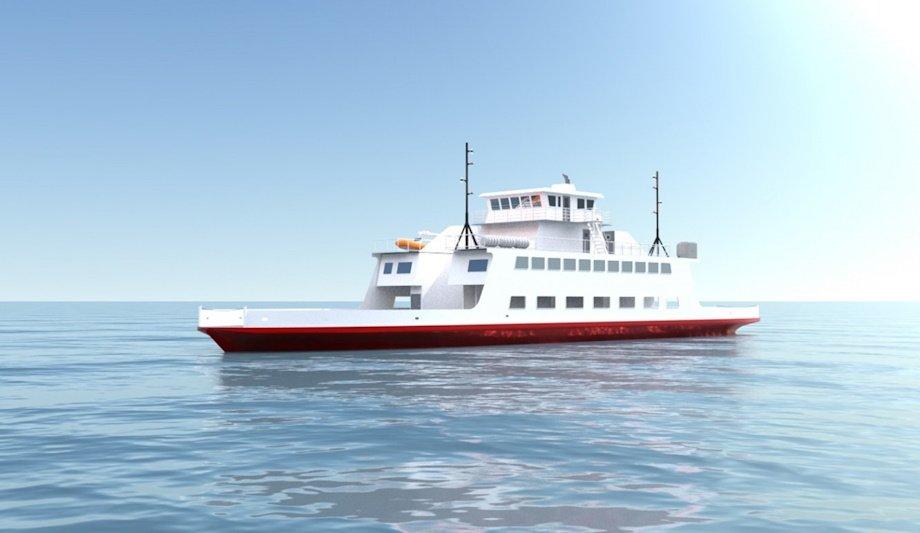ABB has been selected by the Maine Department of Transportation (MaineDOT) to supply a comprehensive grid-to-propeller solution for the new double-ended, hybrid-electric ferry that will provide essential services between the town of Lincolnville and the island community of Islesboro in the United States.
Due to replacing an existing diesel-powered ferry, the new vessel will demonstrate the preference of publicly funded organisations in the US for the high reliability and lower emissions achievable using hybrid-electric seagoing technology. ABB’s scope of supply covers the hybrid-electric propulsion and energy storage system. ABB’s award-winning Onboard DC Grid™ power distribution system will ensure optimal use of energy sources, while ABB Ability™ Marine Remote Diagnostic System will enable the monitoring of onboard systems to maximise vessel uptime.
Safety and efficiency requirements
The 207-foot (62-metre) length newbuild vessel will transport up to 200 passengers and 40 vehicles
The 207-foot (62-metre) length newbuild vessel will transport up to 200 passengers and 40 vehicles between Lincolnville and Islesboro – around three nautical miles from the mainland. Islesboro is designated a ‘Medically Underserved Area’, where approximately 600 year-round residents rely on ferry connections to access healthcare and other critical services. The ferry project is funded primarily by the Federal Transit Administration under its Electric or Low-Emitting Ferry Pilot Program and Ferry Service for Rural Communities Program, with the latter also funding the modernisation of the ferry terminals to align with safety and efficiency requirements.
By replacing the 35-year-old Margaret Chase Smith, the new hybrid-electric vessel will cut fuel consumption by an estimated 100,000 gallons per year, equivalent to around 1,100 tons in CO2 emissions. The project contributes to the Maine Clean Transportation Roadmap, which targets carbon neutrality by 2045.
ABB’s service footprint
“The new hybrid-electric Lincolnville–Islesboro ferry will make a significant contribution to our efforts to decarbonise transportation in the state of Maine,” said Mackenzie Kersbergen P.E., Senior Project Manager, Multimodal Program – Maine Department of Transportation. “ABB has been a great partner to us throughout the design process and we look forward to seeing their system in action. Given the critical need for vessel reliability and uptime on this route, ABB’s service footprint and digital monitoring capabilities set them apart from the competition in our search for a systems integrator.”
“Amid an urgent and growing need to decarbonise ferry operations, ABB’s integrated electric, automated and digital solutions are increasingly selected by US operators looking to replace obsolete ferries in response to regulatory requirements and societal expectations,” said Drew Orvieto, Head of Sales, North America, ABB Marine & Ports. “We are honoured to work with MaineDOT as systems integrator for this important vessel.”
Fleet electrification project
In 2021, ABB won a contract with Maine ferry operator Casco Bay Lines to supply a hybrid power and propulsion system with shore-charging capability to a 164-foot (50-metre) double-ended passenger ferry serving the Portland – Peaks Island route. Due to enter service later this year, the vessel promises an estimated 800-ton reduction in annual CO2 emissions.
Elsewhere in the US ferry market, ABB has recently been involved in a fleet electrification project for Washington State Ferries – the largest ferry system in the country – and supplied the power and propulsion package for the latest ‘Maid of the Mist’ Niagara Falls tour ferries, the first fully electric vessels built in the US.












